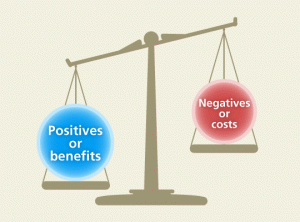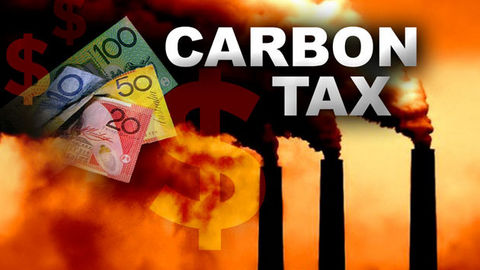Comments due by Oct 21, 2017
LOUD conversation in a train carriage that makes
concentration impossible for fellow-passengers. A farmer spraying weedkiller
that destroys his neighbour’s crop. Motorists whose idling cars spew fumes into
the air, polluting the atmosphere for everyone. Such behaviour might be
considered thoughtless, anti-social or even immoral. For economists these
spillovers are a problem to be solved. Markets are supposed to organise
activity in a way that leaves everyone better off. But the interests of those
directly involved, and of wider society, do not always coincide. Left to their
own devices, boors may ignore travellers’ desire for peace and quiet; farmers
the impact of weedkiller on the crops of others; motorists the effect of their
emissions. In all of these cases, the active parties are doing well, but
bystanders are not. Market prices—of rail tickets, weedkiller or petrol—do not
take these wider costs, or “externalities”, into account. The examples so far
are the negative sort of externality. Others are positive. Melodious music
could improve everyone’s commute, for example; a new road may benefit
communities by more than a private investor would take into account. Still
others are more properly known as “internalities”. These are the overlooked
costs people inflict on their future selves, such as when they smoke, or scoff
so many sugary snacks that their health suffers. The first to lay out the idea
of externalities was Alfred Marshall, a British economist. But it was one of
his students at Cambridge University who became famous for his work on the
problem. Born in 1877 on the Isle of Wight, Arthur Pigou cut a scruffy figure
on campus. He was uncomfortable with strangers, but intellectually brilliant.
Marshall championed him and with the older man’s support, Pigou succeeded him
to become head of the economics faculty when he was just 30 years old. In 1920
Pigou published “The Economics of Welfare”, a dense book that outlined his
vision of economics as a toolkit for improving the lives of the poor.
Externalities, where “self-interest will not…tend to make the national dividend
a maximum”, were central to his theme. Although Pigou sprinkled his analysis
with examples that would have appealed to posh students, such as his concern
for those whose land might be overrun by rabbits from a neighbouring field,
others reflected graver problems. He claimed that chimney smoke in London meant
that there was only 12% as much sunlight as was astronomically possible. Such
pollution imposed huge “uncharged” costs on communities, in the form of dirty
clothes and vegetables, and the need for expensive artificial light. If markets
worked properly, people would invest more in smoke-prevention devices, he
thought. Pigou was open to different ways of tackling externalities. Some
things should be regulated—he scoffed at the idea that the invisible hand could
guide property speculators towards creating a well-planned town. Other
activities ought simply to be banned. No amount of “deceptive
activity”—adulterating food, for example— could generate economic benefits, he
reckoned. But he saw the most obvious forms of intervention as “bounties and
taxes”. These measures would use prices to restore market perfection and avoid
strangling people with red tape. Seeing that producers and sellers of
“intoxicants” did not have to pay for the prisons and policemen associated with
the rowdiness they caused, for example, he recommended a tax on booze. Pricier
kegs should deter some drinkers; the others will pay towards the social costs
they inflict. This type of intervention is now known as a Pigouvian tax. The
idea is not just ubiquitous in economics courses; it is also a favourite of
policymakers. The world is littered with apparently externality-busting taxes.
The French government imposes a noise tax on aircraft at its nine busiest
airports. Levies on drivers to counterbalance the externalities of congestion
and pollution are common in the Western world. Taxes to fix internalities, like
those on tobacco, are pervasive, too. Britain will join other governments in
imposing a levy on unhealthy sugary drinks starting next year. Pigouvian taxes
are also a big part of the policy debate over global warming. Finland and
Denmark have had a carbon tax since the early 1990s; British Columbia, a
Canadian province, since 2008; and Chile and Mexico since 2014. By using prices
as signals, a tax should encourage people and companies to lower their carbon
emissions more efficiently than a regulator could by diktat. If everyone faces
the same tax, those who find it easiest to lower their emissions ought to lower
them the most. Such measures do change behaviour. A tax on plastic bags in
Ireland, for example, cut their use by over 90% (with some unfortunate
side-effects of its own, as thefts of baskets and trolleys rose). Three years
after a charge was introduced on driving in central London, congestion inside
the zone had fallen by a quarter. British Columbia’s carbon tax reduced fuel
consumption and greenhouse-gas emissions by an estimated 5-15%. And experience
with tobacco taxes suggests that they discourage smoking, as long as they are
high and smuggled substitutes are hard to find. Champions of Pigouvian taxes
say that they generate a “double dividend”. As well as creating social benefits
by pricing in harm, they raise revenues that can be used to lower taxes
elsewhere. The Finnish carbon tax was part of a move away from taxes on labour,
for example; if taxes must discourage something, better that it be pollution
than work. In Denmark the tax partly funds pension contributions. Pigou flies
Even as policymakers have embraced Pigou’s idea, however, its flaws, both
theoretical and practical, have been scrutinised. Economists have picked holes
in the theory. One major objection is the incompleteness of the framework,
since it holds everything else in the economy fixed. The impact of a Pigouvian
tax will depend on the level of competition in the market it is affecting, for
example. If a monopoly is already using its power to reduce supply of its
products, a new tax may not do any extra good. And if a dominant drinks firm
absorbs the cost of an alcohol tax rather than passes it on, then it may not
influence the rowdy. (A similar criticism applies to the idea of the double
dividend: taxes on labour could cause people to work less than they otherwise
might, but if an environmental tax raises the cost of things people spend their
income on it might also have the effect of deterring work.) Another assault on
Pigou’s idea came from Ronald Coase, an economist at the University of Chicago
(whose theory of the firm was the subject of the first brief in this series).
Coase considered externalities as a problem of ill-defined property rights. If
it were feasible to assign such rights properly, people could be left to
bargain their way to a good solution without the need for a heavy-handed tax.
Coase used the example of a confectioner, disturbing a quiet doctor working
next door with his noisy machinery. Solving the conflict with a tax would make
less sense than the two neighbours bargaining their way to a solution. The law
could assign the right to be noisy to the sweet-maker, and if worthwhile, the
doctor could pay him to be quiet. In most cases, the sheer hassle of haggling
would render this unrealistic, a problem that Coase was the first to admit. But
his deeper point stands. Before charging in with a corrective tax, first think
about which institutions and laws currently in place could fix things. Coase
pointed out that laws against nuisance could help fix the problem of rabbits
ravaging the land; quiet carriages today assign passengers to places according
to their noise preferences. Others reject Pigou’s approach on moral grounds.
Michael Sandel, a political philosopher at Harvard University, has worried that
relying on prices and markets to fix the world’s problems can end up
legitimising bad behaviour. When in 1998 one school in Haifa tried to encourage
parents to pick their children up on time by fining them, tardy pickups
increased. It turned out that parental guilt was a more effective deterrent
than cash; making payments seems to have assuaged the guilt. Besides these more
theoretical qualms about Pigouvian taxes, policymakers encounter all manner of
practical ones. Pigou himself admitted that his prescriptions were vague; in
“The Economics of Welfare”, though he believed taxes on damaging industries
could benefit society, he did not say which ones. Nor did he spell out in much
detail how to set the level of the tax. Prices in the real world are no help;
their failure to incorporate social costs is the problem that needs to be
solved. Getting people to reveal the precise cost to them of something like
clogged roads is asking a lot. In areas like these, policymakers have had to
settle on a mixture of pragmatism and public acceptability. London’s initial £5
($8) fee for driving into its city centre was suspiciously round for a sum
meant to reflect the social cost of a trip. Inevitably, a desire to raise
revenue also plays a role. It would be nice to believe that politicians set
Pigouvian taxes merely in order to price in an externality, but the evidence,
and common sense, suggests otherwise. Research may have guided the initial
level of a British landfill tax, at £7 a tonne in 1996. But other
considerations may have boosted it to £40 a tonne in 2009, and thence to £80 a
tonne in 2014. Things become even harder when it comes to divining the social
cost of carbon emissions. Economists have diligently poked gigantic models of
the global economy to calculate the relationship between temperature and GDP.
But such exercises inevitably rely on heroic assumptions. And putting a dollar
number on environmental Armageddon is an ethical question, as well as a
technical one, relying as it does on such judgments as how to value unborn
generations. The span of estimates of the economic loss to humanity from carbon
emissions is unhelpfully wide as a result, ranging from around $30 to $400 a
tonne. It’s the politics, stupid The question of where Pigouvian taxes fall is
also tricky. A common gripe is that they are regressive, punishing poorer
people, who, for example, smoke more and are less able to cope with rises in
heating costs. An economist might shrug: the whole point is to raise the price
for whoever is generating the externality. A politician cannot afford to be so
hard-hearted. When Australia introduced a version of a carbon tax in 2012, more
than half of the money ended up being given back to pensioners and poorer
households to help with energy costs. The tax still sharpened incentives, the
handouts softened the pain. A tax is also hard to direct very precisely at the
worst offenders. Binge-drinking accounts for 77% of the costs of excessive
alcohol use, as measured by lost workplace productivity and extra health-care
costs, for example, but less than a fifth of Americans report drinking to
excess in any one month. Economists might like to charge someone’s 12th pint of
beer at a higher rate than their first, but implementing that would be a
nightmare. Globalisation piles on complications. A domestic carbon tax could
encourage people to switch towards imports, or hurt the competitiveness of
companies’ exports, possibly even encouraging them to relocate. One solution
would be to apply a tax on the carbon content of imports and refund the tax to
companies on their exports, as the European Union is doing for cement. But this
would be fiendishly complicated to implement across the economy. A global
harmonised tax on carbon is the stuff of economists’ dreams, and set to remain
so. So, Pigou handed economists a problem and a solution, elegant in theory but
tricky in practice. Politics and policymaking are both harder than the
blackboard scribblings of theoreticians. He was sure, however, that the effort
was worthwhile. Economics, he said, was an instrument “for the bettering of
human life”. (Economist)










